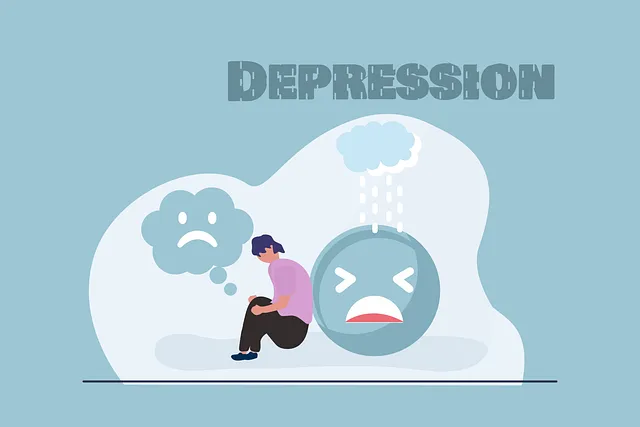The Parker Kaiser Permanente mental health center prioritizes risk assessment and management for effective care. They tailor interventions using Emotional Intelligence (EQ) to create safe, trusting environments. Their strategy includes mitigating harmful behavior triggers, staff training, burnout prevention, advocacy, and evidence-based practices. This holistic approach enhances client outcomes by fostering resilience and ensuring provider well-being through continuous evaluation and training.
“At the Parker Kaiser Permanente Mental Health Center, risk management planning is a cornerstone of patient care and provider well-being. This comprehensive guide explores the unique challenges faced by mental health professionals, delving into understanding and mitigating risks within the context of our center’s innovative practices.
We’ll navigate identifying specific hazards, developing a robust risk management plan, implementing safety strategies, and fostering continuous improvement to ensure a secure environment for both patients and providers at Parker Kaiser Permanente.”
- Understanding Risk in Mental Health Care at Parker Kaiser Permanente Center
- Identifying Potential Hazards and Vulnerabilities Specific to Mental Health Professionals
- Developing a Comprehensive Risk Management Plan: A Step-by-Step Guide
- Implementing Effective Safety Strategies for Patient and Provider Protection
- Continuous Evaluation, Training, and Improvement for Enhanced Risk Mitigation
Understanding Risk in Mental Health Care at Parker Kaiser Permanente Center

At the Parker Kaiser Permanente mental health center, understanding risk is paramount to delivering effective care. The center recognizes that mental health conditions often involve complex interplay of biological, psychological, and social factors, each presenting unique challenges and potential risks. For instance, conditions like anxiety can range from manageable to severe, requiring tailored interventions. Emotional Intelligence (EQ) plays a crucial role in this context; therapists with high EQ can better perceive and manage their emotions, as well as understand and empathize with clients’ feelings, fostering an environment of safety and trust essential for effective therapy.
Risk management at the center goes beyond individual conditions. It involves anticipating and mitigating potential triggers that could escalate symptoms or lead to harmful behaviors. This includes implementing strategies for emotional regulation, particularly in high-stress situations. By integrating Anxiety Relief techniques into treatment plans, the center aims to empower clients with tools to navigate challenging emotions. Moreover, regular staff training on risk assessment and intervention ensures a proactive approach, enabling professionals to recognize early warning signs and provide timely support, ultimately enhancing client outcomes at the Parker Kaiser Permanente mental health center.
Identifying Potential Hazards and Vulnerabilities Specific to Mental Health Professionals

Mental health professionals at centers like the Parker Kaiser Permanente mental health center face unique challenges that require careful risk management planning. Identifying potential hazards and vulnerabilities is a critical first step in this process, as it allows for proactive measures to protect both practitioners and their patients. Unlike other healthcare settings, the nature of mental health work often involves intense emotional engagement, long hours, and complex patient relationships, which can contribute to increased stress and burnout.
Specific risks include exposure to traumatic stories and experiences from patients, high caseloads, and the constant need for empathy and compassion, all of which can take a toll on mental health professionals’ well-being. Moreover, maintaining professional boundaries can be challenging due to the intimate nature of therapy sessions. Therefore, a comprehensive risk management strategy should incorporate Burnout Prevention Strategies for Healthcare Providers and Mental Health Policy Analysis and Advocacy, ensuring that these professionals have access to resources that support their Mental Health Awareness and overall resilience.
Developing a Comprehensive Risk Management Plan: A Step-by-Step Guide

Developing a Comprehensive Risk Management Plan is essential for mental health professionals at centers like Parker Kaiser Permanente to ensure patient safety and foster an optimal therapeutic environment. This process involves several key steps. Firstly, conduct a thorough risk assessment by identifying potential hazards within your practice, such as client confidentiality breaches, malpractice claims, or even staff burnout. Analyze past incidents, industry trends, and unique center-specific challenges using tools like the Mental Health Policy Analysis and Advocacy framework to gain insights.
Next, prioritize these risks based on likelihood and impact. This step guides the creation of tailored strategies. For instance, implementing robust data security measures can mitigate confidentiality breaches, while regular staff training sessions focusing on Mood Management and Self-Awareness Exercises can reduce stress levels and improve overall well-being. Each risk should have a corresponding mitigation plan, ensuring that proactive steps are taken to minimize potential harm. Regularly review and update this plan to adapt to evolving circumstances, thus fostering a dynamic and safe environment for both clients and care providers at the Parker Kaiser Permanente mental health center.
Implementing Effective Safety Strategies for Patient and Provider Protection

Mental health professionals at the Parker Kaiser Permanente center understand that implementing robust safety strategies is paramount for patient and provider protection. This involves a multi-faceted approach, including ensuring secure communication channels, standardized risk assessment protocols, and clear crisis intervention plans. By adopting evidence-based practices, such as those taught in depression prevention workshops, therapists can better equip themselves to manage high-risk cases effectively.
Moreover, fostering an environment that promotes open dialogue about mental health challenges, coupled with confidence-boosting initiatives, strengthens the center’s safety net. The Community Outreach Program Implementation plays a crucial role here by connecting patients to support systems beyond the clinical setting. This holistic approach not only enhances patient outcomes but also ensures the well-being and resilience of the healthcare providers at the Parker Kaiser Permanente mental health center.
Continuous Evaluation, Training, and Improvement for Enhanced Risk Mitigation

At the Parker Kaiser Permanente mental health center, continuous evaluation and training are cornerstones of an effective risk management strategy. Regularly updating risk assessment protocols ensures that professionals stay current with best practices, emerging research, and industry standards. Through ongoing training programs, practitioners enhance their skills in identifying and mitigating risks, including burnout prevention and depression prevention strategies tailored to the unique challenges they face.
This dynamic approach fosters a culture of continuous improvement where mental health professionals are empowered to recognize potential hazards early on, implement effective interventions, and adapt practices as needed. By embracing these principles, the center aims to not only mitigate risks but also promote resilience among its staff, ultimately enhancing patient care and safety in line with national standards, such as those expected from leading institutions like Kaiser Permanente.
Mental health professionals at the Parker Kaiser Permanente Center play a vital role in managing risk within their specialized field. By understanding the unique hazards and vulnerabilities inherent in mental health care, they can develop robust risk management plans. Following a structured step-by-step guide ensures comprehensive coverage of potential risks. Continuous evaluation, training, and improvement loops are essential to stay ahead of emerging challenges, ultimately enhancing safety for both patients and providers at the Parker Kaiser Permanente mental health center.






